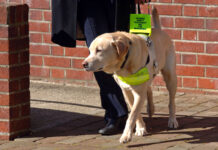International Pronouns Day will be celebrated tomorrow by local grassroot communities.
The Day was launched in 2018 and takes place on the third Wednesday of October each year. It seeks to make respecting, sharing, and educating about personal pronouns common practice.
Pronouns are the words we use to refer to someone when we are not using their name; “They”, “Them”, “She”, “Her”, “He”, “Him”, “Zie”, “Fey”, are just some examples.
Alisha Jade Brown is the president of the LGBTQ+ society at LJMU and feels this day is extremely important to raise awareness around personal pronouns.
Alisha wanted to add that everyone’s experiences are different and her views are not necessarily that of the whole community.
There are often worries about mis-gendering someone, but Alisha said: “We don’t really mind if you slip up every once in a while, as long as you correct yourself, so it’s not really a problem unless you’re constantly referring to someone by the wrong pronouns intentionally.”
When this day was first celebrated in 2018, Instagram did not have a gender identity pronoun option. As of last year, people can now share the pronoun they wish to be referred to as on their profile. I created a poll on Instagram to see if my followers felt this was a positive step for the social media platform and 28% felt it was not useful.
Yaz Batey, who identifies as they/them, disagreed with this percentage. They said the function makes Instagram more inclusive and it helps people normalise people having different pronouns.
Respect was a common theme when passers by were asked their opinions on using correct pronouns.
Here are some ways that everyone can support the LGBTQ+ community in everyday life.
Top-tips when it comes to pronouns:
- When you introduce yourself, include your pronoun. This can remind people that it may not always be obvious what pronoun someone uses.
- Put your pronouns in your email signature, social media profiles and Zoom/MS Teams account names.
- Try to avoid addressing groups or people with gendered language (e.g. instead of using ‘ladies and gentleman’, use the word ‘everyone’ to address a group.
- If you are not sure what someone’s pronouns are, ask them.
- If you accidentally mis-gender someone (use the wrong pronoun), just apologise and make sure you use their correct pronoun from that point on.
Practise with Pronouns is a website which can help educate you on how to use them correctly.
Featured image © Coni Harpham












